Imagining a better world: the art of degrowth
- Written by Samuel Alexander, Research fellow, Melbourne Sustainable Society Institute, University of Melbourne
We are living in an age of gross ecological overshoot - our demands on the planet far exceed what is sustainable. Wealth is extremely concentrated while billions go hungry. And with the world’s population heading toward 11 billion by the end of the century, something has to give.
One response to these overlapping crises is degrowth. This movement argues that the developed regions of the world, including Australia, will need to initiate a process of “planned economic contraction” in order to achieve a just and sustainable world.
Degrowth means embracing sufficiency for all, rather than excess for a few, and culturally, it means imagining a good life beyond consumerism. This can be hard for people conditioned to living in a wealthy society.
Art can be one way of imagining this world, as I explore in a recent essay and book. I was interested in whether looking at the world through the lens of aesthetics, the philosophy of art, might reveal new political and economic insights about degrowth. Many of the works I curated for the book draw on the practice of “culture jamming”. For instance, some artists rework advertising to subvert the consumerist message.
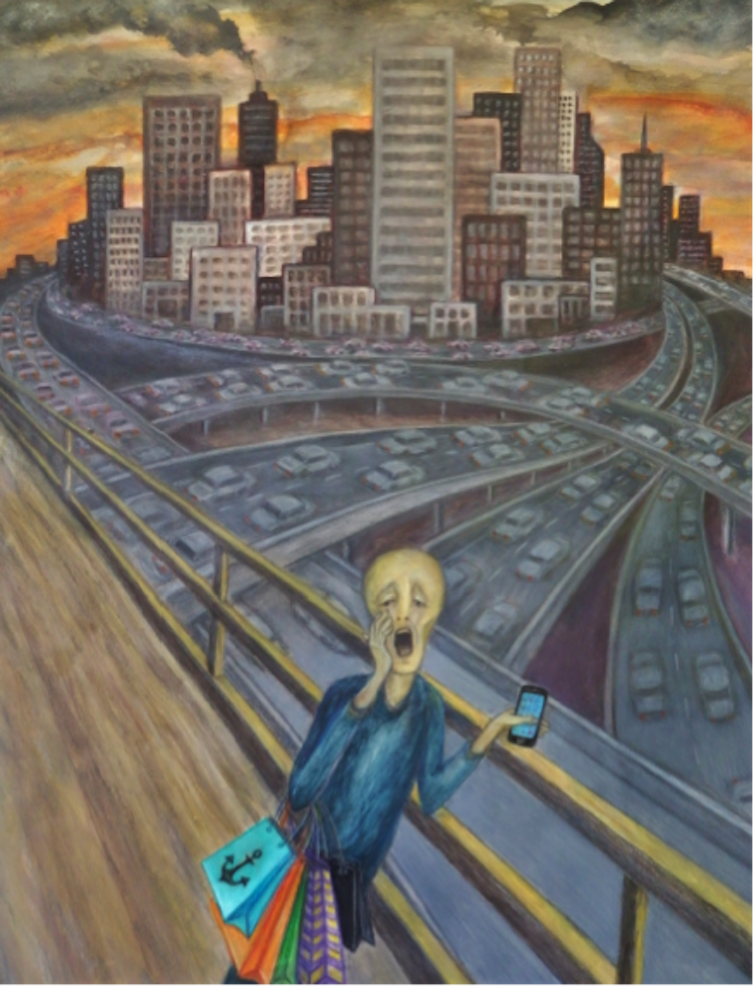 The Yawn.
Thea T
The Yawn.
Thea T
I argue art can help the degrowth movement in three ways. First, and perhaps most fundamentally, is the importance of story, myth, and narrative. Currently the dominant stories we tell about ourselves and society seem to be shaped by materialistic conceptions of the good life and the macroeconomics of growth. For a degrowth movement to emerge, we need new myths, new stories, new hopes and dreams, and new conceptions of prosperity. Only then can a new economics emerge.
Second, how we feel matters – perhaps it is even more important than how we think. Human beings aren’t always (or often) rational robots that simply digest the best science and automatically change how we vote and behave. Through art, the degrowth movement might be able to engage the heart as much as the head. Unless there is a vision of an alternative world and the desire for it to emerge, progressive movements will never get off the ground. Art might be able to provoke and inspire in ways that science cannot.
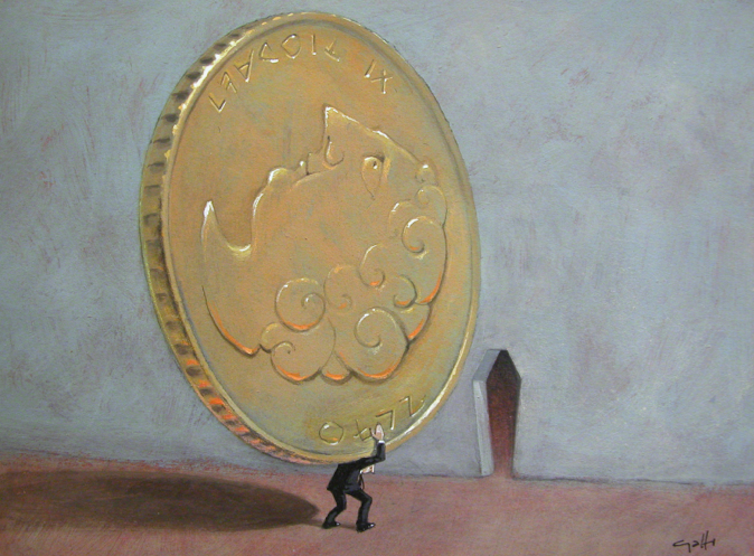 Money and Grave.
Allesandro Gatto
Money and Grave.
Allesandro Gatto
Finally, degrowth presents a communication challenge. It is not enough to have the most compelling evidence or the best arguments. If you will excuse the metaphor, somehow or other, degrowth (or something like it) needs to be “sold” in an attractive, compelling way. In a consumer society, this will not be easy, but the artist provides our best hope.
If the degrowth movement fails in the great transition beyond growth, as may well be the case, then I believe art might acquire even greater importance. This is because it will be the artist who will be charged with weaving narratives of solidarity and compassion if the existing civilisation continues to deteriorate or collapse in the face of cultural malaise, creeping fascism, and ecological limits.
In an age when things seem to be going from bad to worse, perhaps art can serve this important therapeutic, or even spiritual, function.
The following are works curated in Art Against Empire.
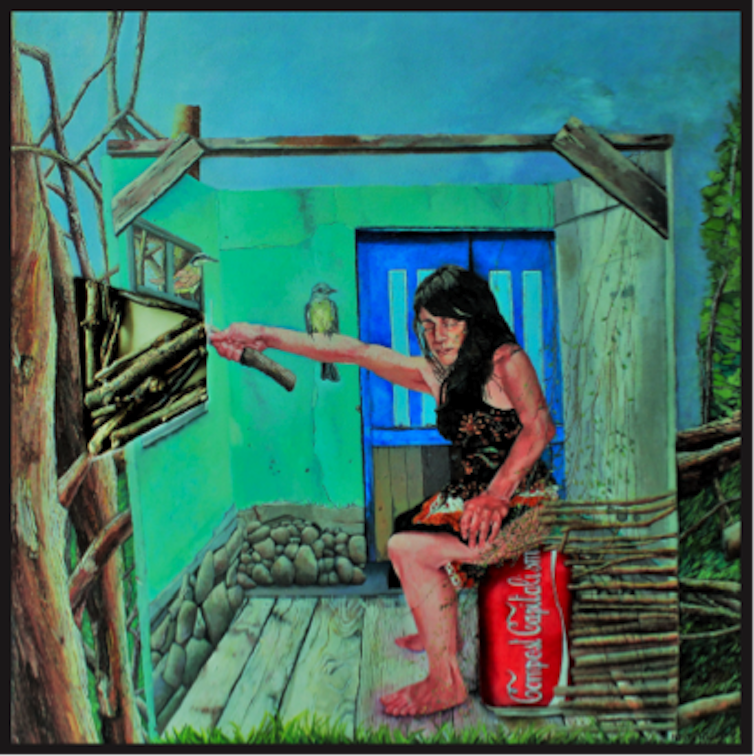 Compost capitalism.
Maria Pena
Compost capitalism.
Maria Pena
 Love.
Greg Foyster
Love.
Greg Foyster
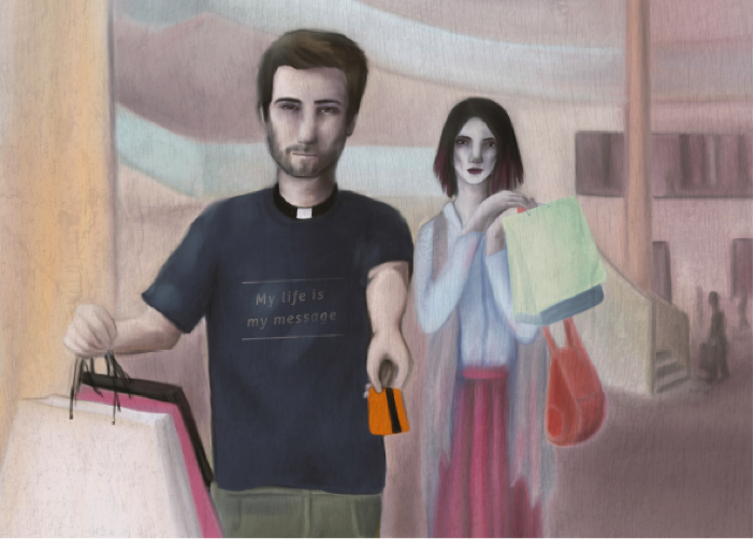 My life is my message.
Lena Singla
My life is my message.
Lena Singla
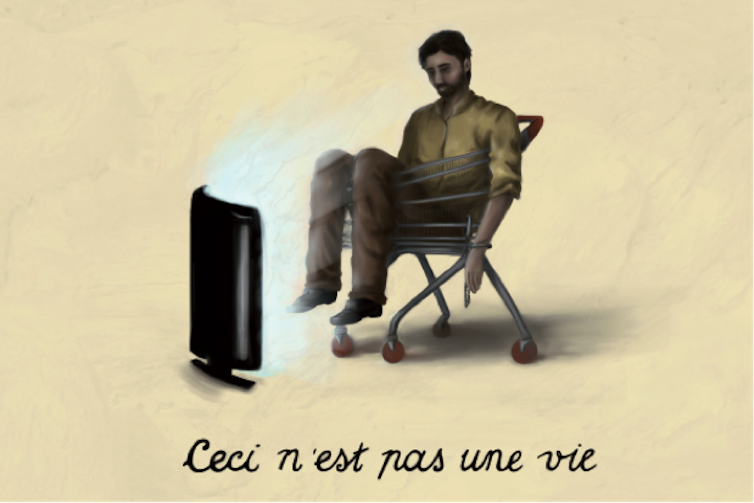 This is not a life.
Lena Singla
This is not a life.
Lena Singla
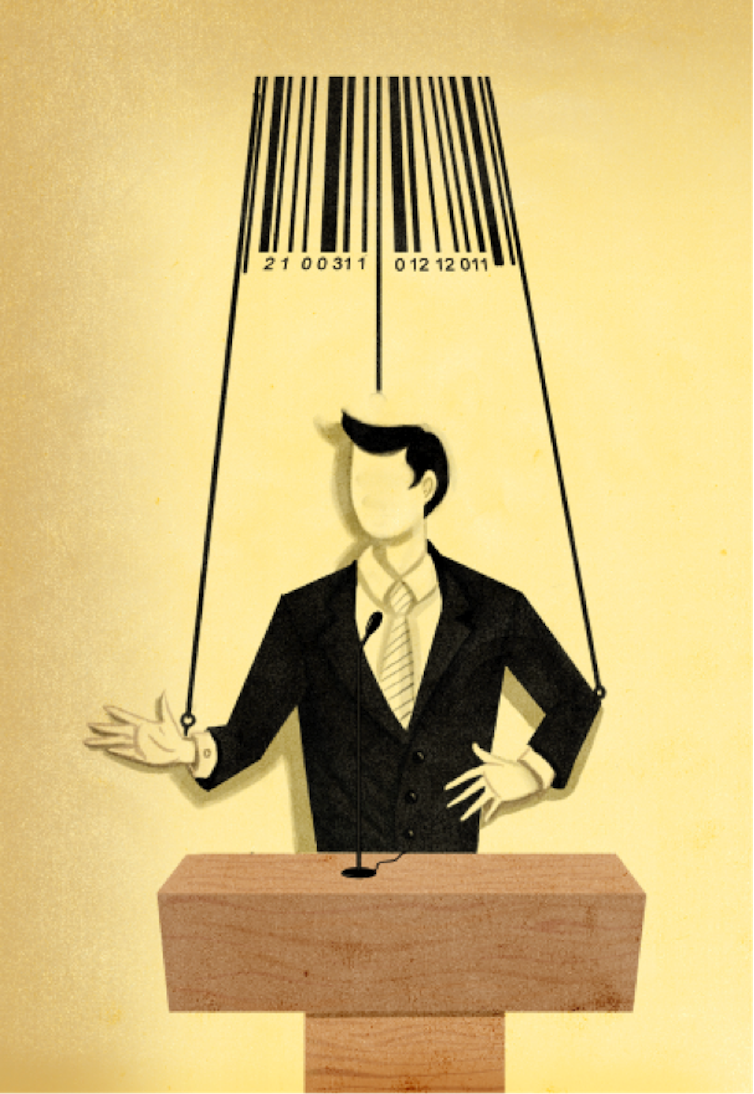 The politics of money.
Marco Melgrati
The politics of money.
Marco Melgrati
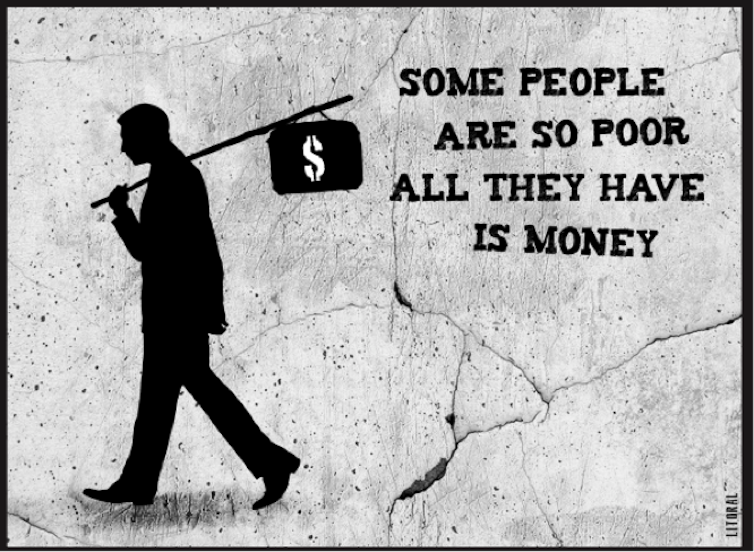 The poverty of riches.
Jorges Alaminos Fernandez
The poverty of riches.
Jorges Alaminos Fernandez
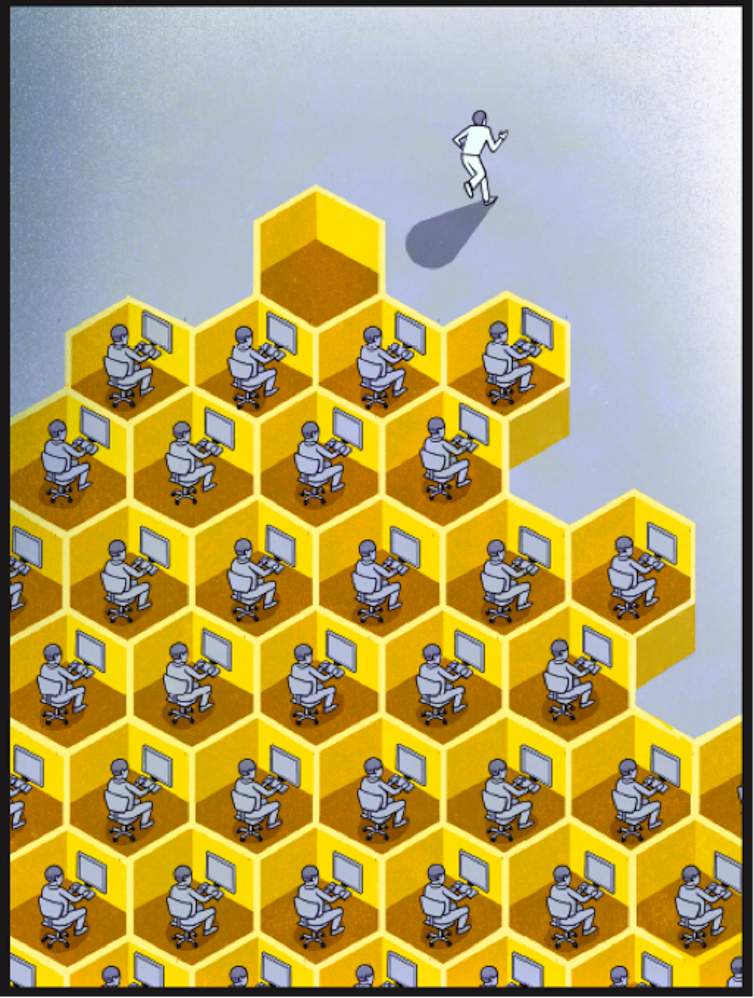 The Great Refusal.
Marco Melgrati
The Great Refusal.
Marco Melgrati
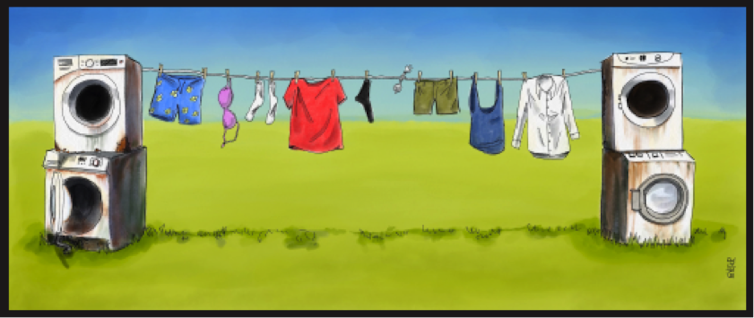 Prosperous Descent.
Greg Foyster
Prosperous Descent.
Greg Foyster
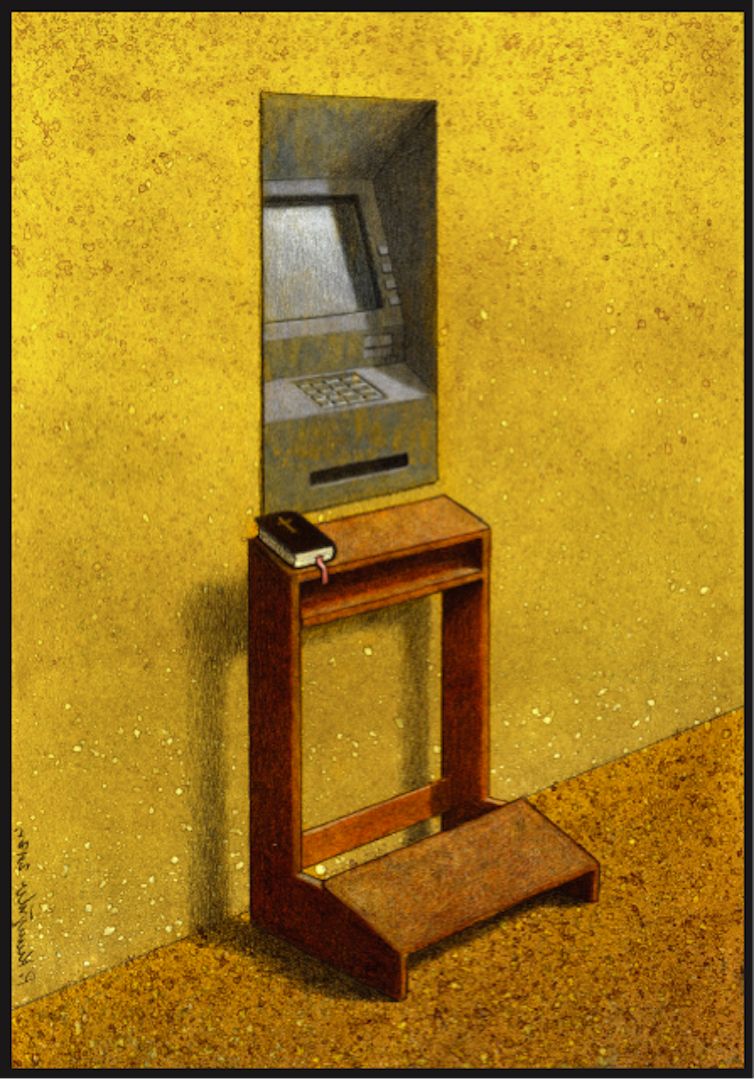 New religion.
Pawel Kuczynski
New religion.
Pawel Kuczynski
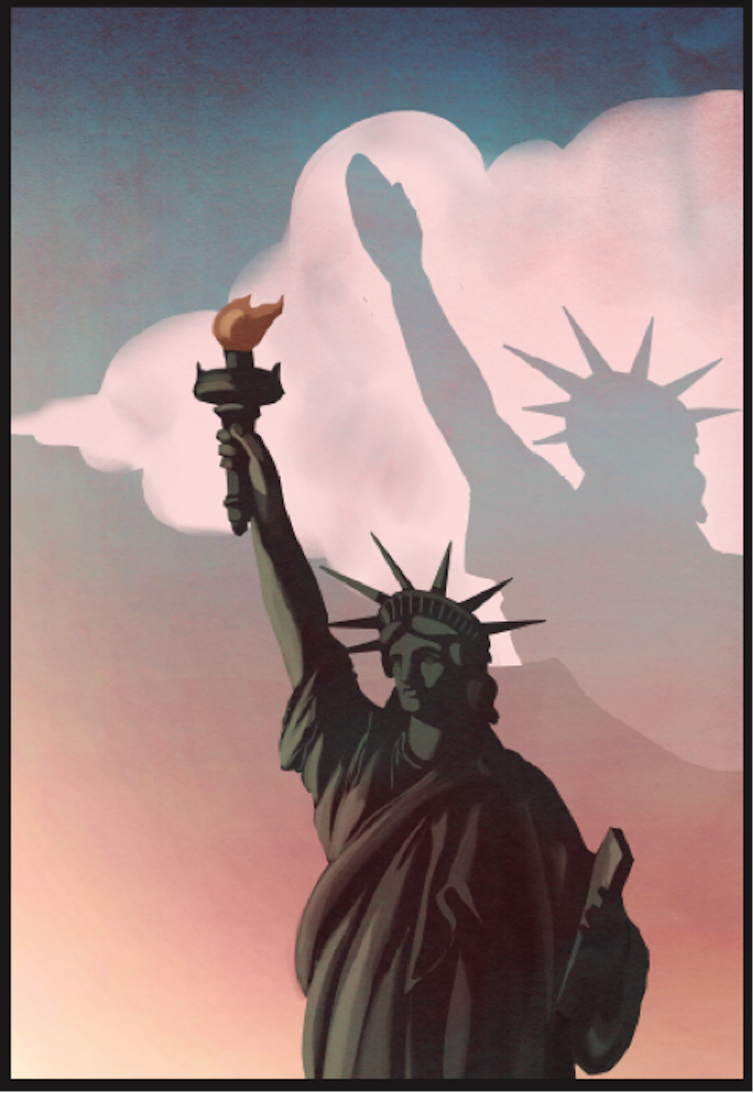 Salute of liberty.
Marco Melgrati
Salute of liberty.
Marco Melgrati
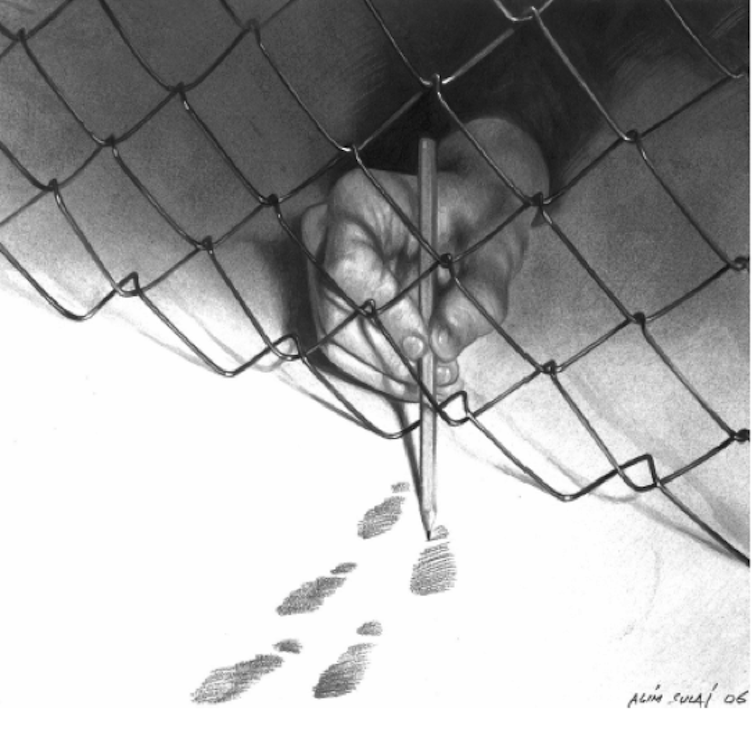 First there must be vision.
Agum Sulaj
First there must be vision.
Agum Sulaj
Authors: Samuel Alexander, Research fellow, Melbourne Sustainable Society Institute, University of Melbourne
Read more http://theconversation.com/imagining-a-better-world-the-art-of-degrowth-86201




